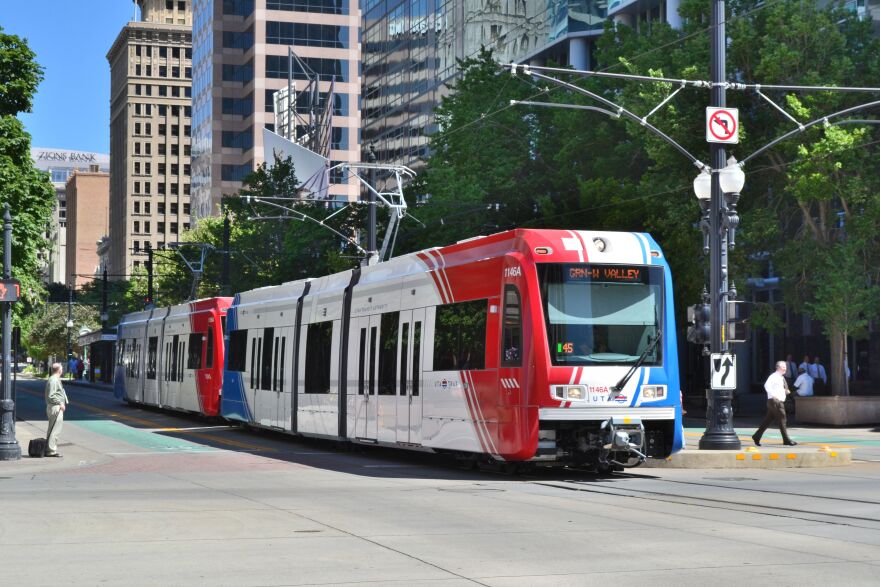In North Carolina, a federal transportation grant will help develop a light-rail system between Chapel Hill and Durham.
In Provo, Utah, the same grant will help with the development of a Bus Rapid Transit system.
In Atlanta, the grant will help fund the development of a 16-mile streetcar corridor.
Louisville will get no such funding. But there's potential that it could, someday.
Louisville transportation officials didn't apply for a share of the $20-million grant because the city doesn't have any plans to develop a similar fixed-route transit service, said TARC spokeswoman Kay Stewart.
The grant, administered by the Federal Transit Administration, went to cities developing comprehensive "transit-oriented developments" — light rail, streetcar or Bus Rapid Transit.
"The funding was for planning associated with more advanced public transportation than what we have," Stewart said.
But Louisville is nearing the end of a years-long effort to develop a comprehensive transportation strategic plan — and it could include proposals for transit-oriented developments.
The release of the Move Louisville plan has been delayed nearly a year, and it's unclear what type of proposals it will include.
The transportation strategic plan is being fostered by Louisville Forward, the city's economic development arm. When the transportation plan will be released is unknown; a Louisville Forward spokeswoman did not return repeated requests for comment about the timing of the release.
The goal of the plan is to develop a strategy that makes it easier for residents to get around by foot, bike, public transit and vehicle.
A months-long public input period was conducted and thousands of responses were returned, supporting transportation initiatives like bike lanes, better sidewalks — and light rail, said Patti Clare, former deputy director of the city’s office of advanced planning.
If the final plan does outline specifics for light rail or Bus Rapid Transit, it has the potential to pave the way for future grant funding opportunities.
A plan to build a major transit project, like light rail or street car or Bus Rapid Transit, would "bring tremendous benefits," said Stewart, of TARC.
Like, more funding, for instance.
The idea of developing light rail and Bus Rapid Transit service in Louisville is not a new idea.
A comprehensive plan for bringing light rail to the city was hashed out in a seven-year effort that began in the late 1990s. By 2004, however, that plan was put on hold indefinitely due to federal funding challenges and other "community priorities," according to TARC’s long range plan.
TARC's long-range plan called on TARC to “implement changes in policies to encourage transit-oriented development in anticipation of bus rapid transit and rail corridors.”
"There were some key proposals that came up in the Move Louisville planning process that would facilitate transit-oriented development in some key locations," Terrell Holder, a spokesperson for the Coalition for the Advancement of Regional Transportation said in an email.
Transit-oriented development is critical to the success of new projects and to the economy of the local communities served by the service, said Therese McMillan, the acting administrator of the Federal Transit Administration.
McMillan said such services can encourage people to use public transit to reach jobs, education, medical care and housing.
Federal grants often boast very specific qualifying parameters, said Mantil Williams, spokesman for the American Public Transportation Administration.
Holder said the grants often require specific, comprehensive plans. More transportation planning means opening the city up to more eligibility to apply for more outside funding.
Last month, the Federal Transit Administration awarded grants to 17 metro areas for transit-oriented developments.
Stewart said grant funding is crucial for maintaining and advancing public transportation. TARC struggles to maintain existing service with current resources, she added.
With or without a Move Louisville plan, Stewart stressed the construction of light rail or other advanced transit services would require more than just grant funding, it would also call for substantial local match funding.
She points to a local option sales tax — of which Mayor Greg Fischer has been a key proponent of — as a possible stream of funding for a major transit project, though that requires backing by the state legislature.
Whether a Move Louisville plan comes sooner or later, Holder is pessimistic about the future of advanced transportation options in Louisville due to a lack of government-supplied funding and "tax-averse" citizens.
"Unless the citizens of the metro area demand premium transit with a unified voice, Louisville will continue to be a laggard among peers in this area," he said.
(Image: Light rail train in Utah. Via Creative Commons)







